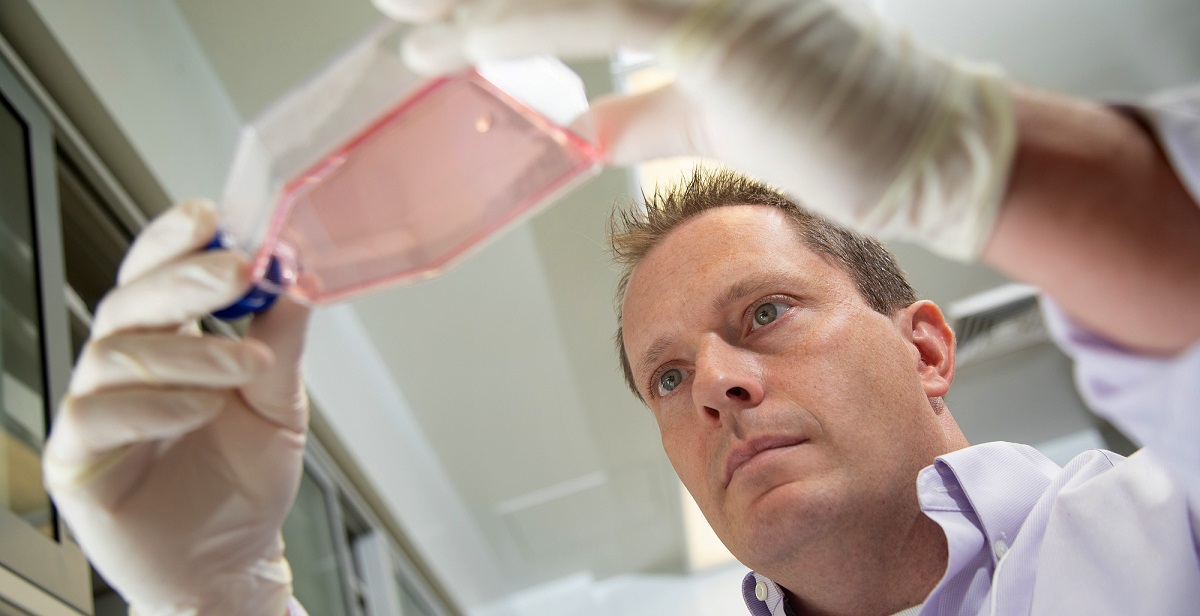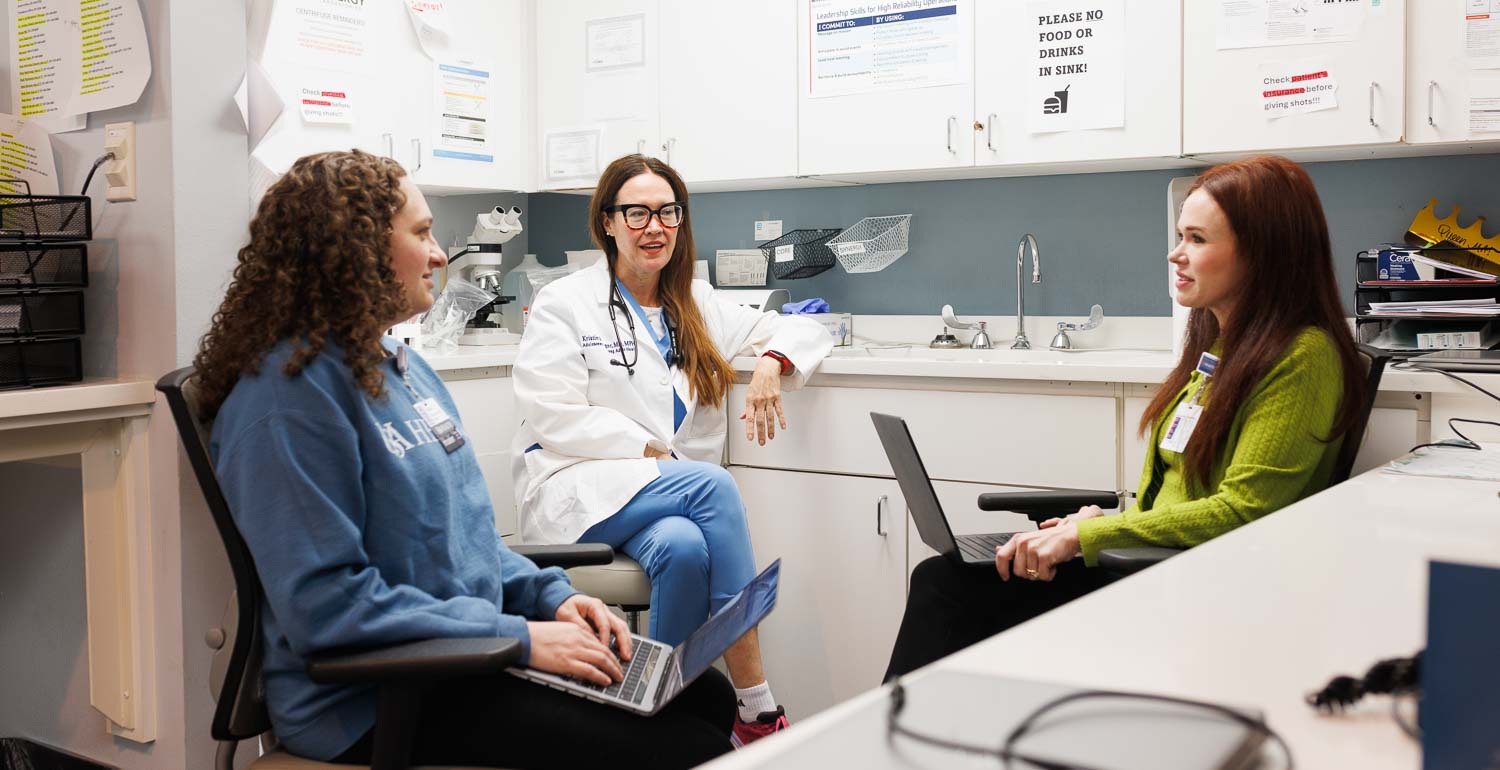College of Medicine Research Examines Novel Genetic Pathway in Treatment of COVID-19, Viral Infections
Posted on July 15, 2020

A recent discovery at the University of South Alabama College of Medicine shows there is a contributor in the body that helps fight viral infections. According to Dr. Glen Borchert, associate professor of pharmacology, his team found that the body pumps a new form of transfer ribonucleic acid (tRNA) fragments into lung fluid which helps target respiratory viruses.
The finding comes from one of seven externally funded COVID-related research projects underway at the University and USA Health from federal, private and foundation sponsors. These rapid response projects submitted very early in the pandemic timeline total $464,132 in funding. Another 20 proposals totaling $4.3 million have been submitted since then and are awaiting funding. (NOTE: As of Aug. 6, a total of 16 projects were funded with another 15 proposed.)
The team at the Borchert Laboratory at the USA College of Medicine are exploring why tRNA fragments are flowing in and out of lung cells and how it could combat respiratory viruses, such as the coronavirus. The team plans to test the tRNA fragments’ ability to restrict SARS-CoV2, the virus causing COVID-19.
The National Science Foundation awarded the Borchert Laboratory $200,000 for further research into the discovery. The USA College of Medicine is the only institution in the nation awarded a grant on this specific research topic.
“With this funding, our work can go further as we begin to better understand how the body naturally fights infections,” Borchert said. “Once we’ve collected the data from testing the tRNA fragments, we can work toward more therapeutics for patients battling viral infections.”
Dr. Natalie Bauer, associate professor in the department of pharmacology; Dr. Jin Hyun Kim, assistant professor in the department of microbiology and immunology; and Dr. Dominika Houserova and medical student Ravi Rajendra, both at the USA College of Medicine, are collaborators on the project.



